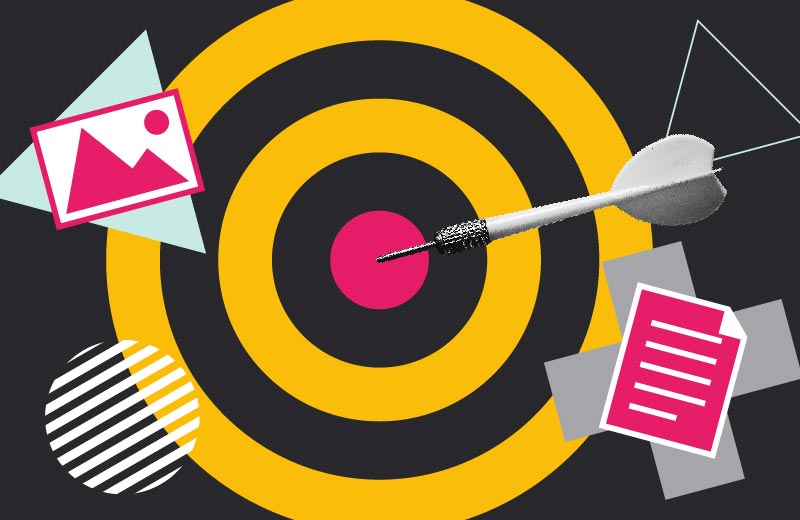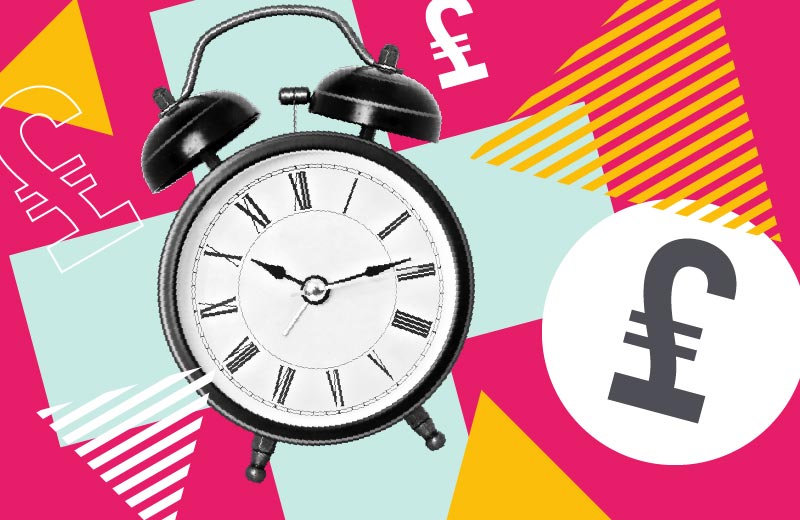

What is a free pitch?
A free pitch, or spec work as it is also known, is when multiple design firms are asked to submit concepts for a project without receiving any compensation for their efforts unless they win. While this might feel like a cost-saving measure to you, it can cost you in the long run as well as being unfair and unethical.
The ethical problem with free pitches
Just because it’s a long-standing practice, it doesn’t mean it’s right or fair. The main issue with free pitches is that they devalue the work that graphic designers do. Spec work comes at the expense of graphic designers, who often spend hours or days on these projects competing against each other without any form of payment or compensation for their time, energy and creativity. It sends the message that their work is not worth paying for. If a design team will do work for free, it becomes difficult for them to justify their fees when they do have the opportunity to charge, despite having many years of experience and expertise.
It shows a massive lack of respect on the client’s part. I would not dream of asking three plumbers to each fix a tap for free, with the winner being paid and commissioned to replumb my bathroom! Would you ask a solicitor to draft a document for free so you can compare it to what their competitors will do also do for free? Of course not – because you know the value of their time and expertise. Design is no different. What graphic designers create costs them time and is produced with their expertise.

Free pitches can lead to poor-quality work
Free pitches are problematic for clients as well as design businesses. They can often lead to poor-quality work. Designers may not feel incentivised as they know they may not win and therefore receive no compensation for their work.
In addition, the design team won’t be able to work in collaboration with you, through rounds of feedback and iteration, like they would with a paid project. This vacuum can mean projects go off track or produce subpar results.
Free pitches cost all clients
Deadlines for pitch work are usually unreasonably short, requiring design firms to push scheduled paying work to the side so they can work long and late in the hope of winning the pitch. This means that not only is the pitch work rushed and likely not be of the highest standard, but the scheduled work suffers too.
Back in my employed days, I recall working on pitches until the early hours and at weekends. Afterwards, I always felt exhausted and, frankly, resentful because I was struggling to produce work to the best of my abilities for paying clients.
Would you like it if your creative partner pushed your project, which you are paying for, to one side so they can chase a new client through a free pitch? How would you feel if you knew your designer was unable to produce work of the highest standards because they were too burnt out from spec work for someone else?
We all know winning work requires time and effort in the form of advertising, networking, social media, meetings, quoting and following up. Adding spec work into this can be a huge investment of time, requiring hours and days to do the work plus time to present the work to the client. For a design team to be able to afford this – knowing they may not be paid for this time – they’ll need to increase their fees to paying clients to cover it. I think you’ll agree, while it’s not a cost a design firm can necessarily swallow, it’s not fair for paying clients to foot the bill either.

Free pitches open up further opportunities for exploitation
Over my employed years, I worked directly on or alongside other designers on many free pitches. What I found was that we lost most of the pitches. Sometimes this was based on cost – which means the design work we’d poured our hearts and souls into was superfluous and that the client was encouraging us to outbid each other with profit-challenging low fees. There was also a great number of pitches that were lost to the incumbent agency or the managing director’s friend or relative and it became clear this had been more or less decided before the pitch brief had even been released. This again shows disrespect on the client’s part.
In addition, when no money or contract has changed hands there is little copyright protection for design firms. This means clients can pass on pitch work from unsuccessful participants for the winning agency to copy. Sadly, I witnessed this first-hand when some pitch work I had contributed to was plagiarised by a winning agency. This was completely unethical on the part of the client and the winning agency for agreeing to plagarise the work.
Are there any situations when free work is OK?
Even if you don’t ask design practices to compete in free pitches, don’t ask them to work for free for “exposure” either. Allowing them to place their logo and/or website on the outcome of the project, be it a magazine, leaflet or website rarely produces any paying work for them and doesn’t get around the fact that they won’t have been renumerated for the time taken on your project. Exposure doesn’t pay the bills.
Sometimes agencies do pro bono work for charities or other organisations where they feel the work is for “the public good”. This can ethically happen if the agency can deliver the work without compromising the quality of work for paying clients.
There is of course “off the books” work for family and close friends but that has to be taken on with the agreement that paying work comes first and only if the design firm has the capacity.
Some would argue inexperienced freelance designers may need to take on free work to build their portfolios. While junior designers can’t command the same fees as those who are much more experienced, they do still deserve to be paid fairly for the work they have done, in respect of the knowledge, skill and training they have accumulated so far. They have bills to pay just as much as everyone else!

Studio Bifrost takes a strong stand against free pitches
Commissioning free pitches can lead to unethical practices as well as below-par designs due to a lack of proper feedback and communication between you, the client, and our creative team. We need to all strive towards creating an equitable environment where everyone involved in a project receives fair compensation for the work they have done. Taking this stance against free pitches means Studio Bifrost clients have access to high-quality design work while also promoting mutual respect in our client-creative relationships.
Although free pitches seem to be less commonplace nowadays, we are sometimes asked to take part in them. As an alternative, we offer to conduct a free consultation so you can gain an understanding of our approach and expertise in person.
We have also worked with clients on a staged basis, which has meant they have learnt what it’s like to collaborate with Studio Bifrost without commitment while ensuring we are renumerated for the projects we’ve completed.
This has worked well for clients who felt some trepidation in engaging with a new creative partner. We understand you might feel this uncertainty too as you’re trusting a professional you don’t know that well with your budget. What we’ve found is that a staged approach is a great way to build a healthy relationship with clients. Once clients have completed a few smaller projects with us, they go on to commission larger projects, trust us to bill for our work without up-front quotes needed and agree to retainer contracts with us.
For us at Studio Bifrost, it’s all about trust and mutual respect because these lead to high-quality work, happy clients and a happy creative team!

A partnership made in heaven?
Feeling inspired? We'd love to help! We are a team of collaborators that enjoy nothing more than partnering with ambitious clients. Get in touch if you'd like to talk through your next project or get some advice.



